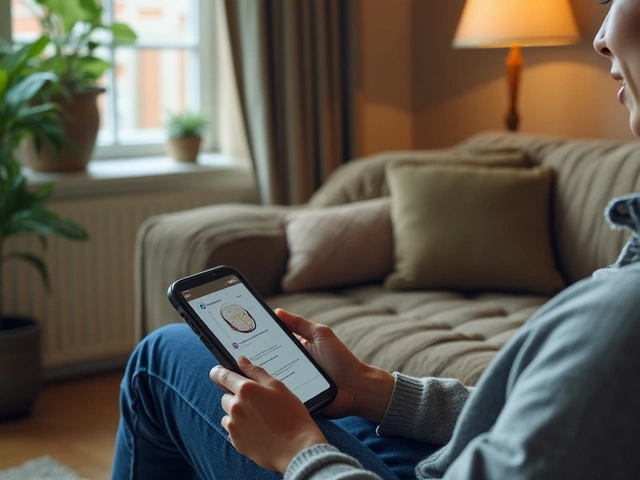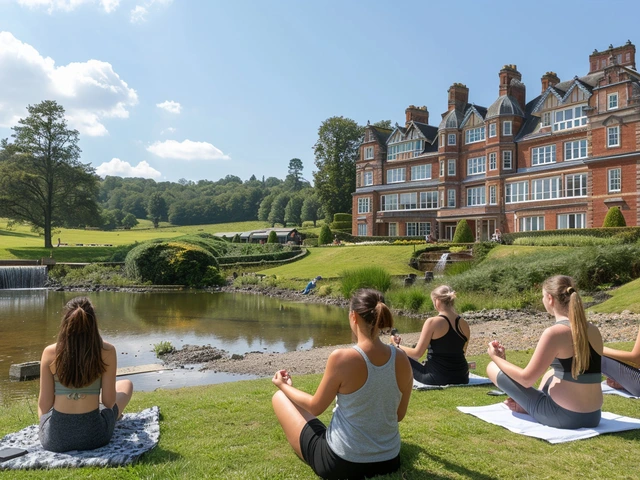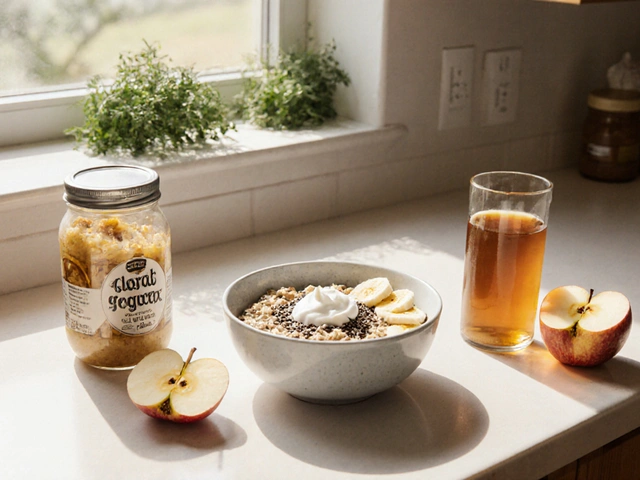Stress is a common part of life, but it can take a toll on your health if not managed properly. Finding effective relaxation techniques is crucial for mitigating its effects and maintaining a balanced lifestyle.
In this article, we will explore various methods to help you unwind and de-stress. From breathing exercises to mindfulness practices, these techniques are designed to fit into your daily routine easily.
By incorporating these habits, you can improve your mental well-being and enhance your overall quality of life. Let's delve into some practical and simple ways to achieve relaxation.
- Understanding Stress and Its Impact
- Breathing Techniques
- Mindfulness and Meditation
- Physical Activities That Promote Relaxation
Understanding Stress and Its Impact
Stress is something everyone experiences at some point in their lives. It's the body's natural response to challenges or demands. When you encounter a stressful situation, your body goes through a series of changes, such as an increase in heart rate, quicker breathing, and a surge of hormones like adrenaline and cortisol. These reactions are part of the fight-or-flight response, which prepares you to either confront or flee from the threat.
However, when stress becomes chronic, it can have serious health implications. Constant exposure to stress can lead to various physical and mental health issues, such as headaches, high blood pressure, heart disease, diabetes, depression, and anxiety. Recognizing the signs of chronic stress is crucial for taking appropriate actions to manage it effectively.
Chronic stress can also impact your immune system, making you more vulnerable to illnesses. It can affect sleep patterns, leading to insomnia or poor-quality sleep, which further exacerbates stress levels. Emotional symptoms, such as feeling overwhelmed, irritable, or anxious, are common indicators of chronic stress. It can also lead to behavioral changes, like withdrawing from social activities, changes in appetite, or relying on substances like alcohol and caffeine to cope.
Understanding the sources of stress is equally important. They can vary from person to person but often include work-related pressures, financial worries, relationship issues, and major life changes. Everyday hassles, such as traffic jams, long queues, or household chores, can accumulate and contribute to stress.
"Stress is not what happens to us. It's our response to what happens. And response is something we can choose." - Maureen Killoran
By identifying these sources, you can begin to develop strategies to manage stress more effectively. This might include setting realistic goals, learning to say no, managing your time better, and seeking support from friends, family, or a mental health professional when necessary.
Acknowledging that stress is a part of life can also be comforting. Remember that not all stress is bad. Short-term stress can sometimes be beneficial, helping you to stay focused, energetic, and alert. It's the chronic stress that's harmful, and learning how to handle it can make a significant difference to your quality of life. With the right relaxation techniques and a proactive approach, you can effectively manage stress and lead a healthier, more balanced life.
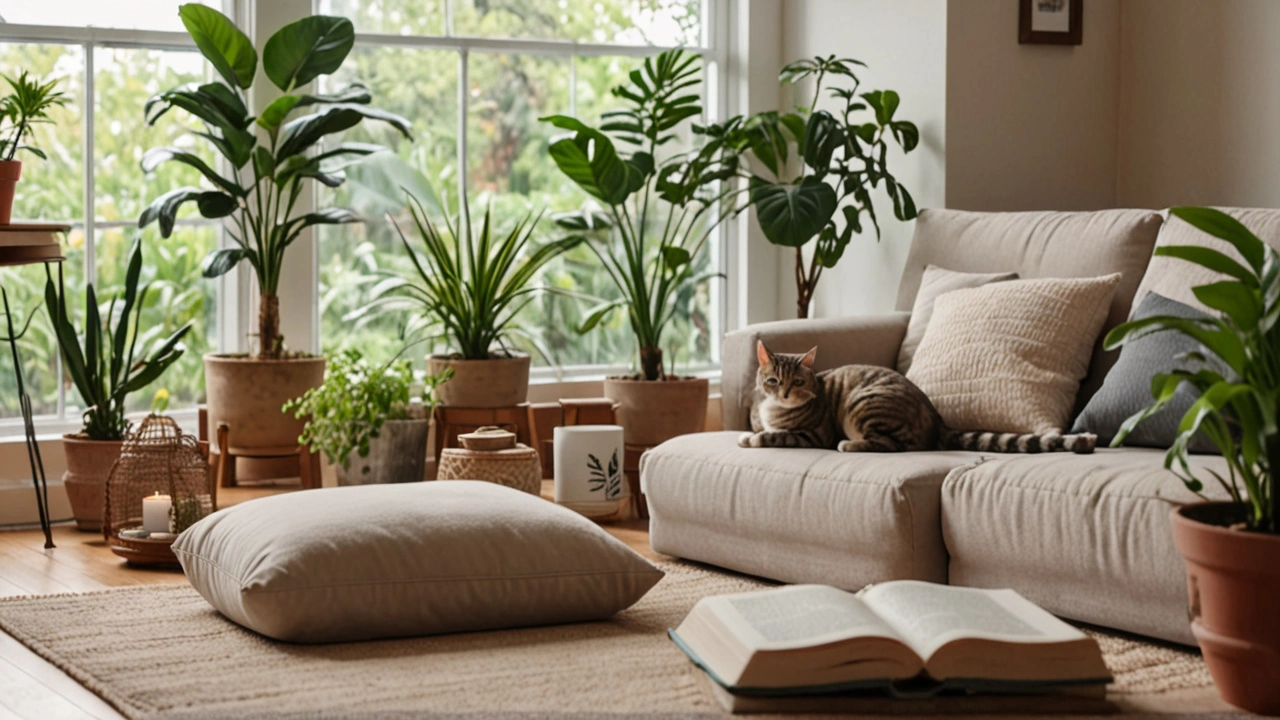
Breathing Techniques
Breathing is something we do without thinking, but being mindful of it can significantly reduce stress and promote relaxation. Ancient cultures have long practiced controlled breathing to calm the mind and enhance concentration. Recently, science has backed up these practices with evidence showing that breathing techniques can lower heart rate, blood pressure, and cortisol levels. This section will introduce you to some powerful breathing methods that you can use to melt away stress.
One effective technique is deep belly breathing. Also known as diaphragmatic breathing, this method focuses on engaging the diaphragm to allow full oxygen exchange. To practice this, sit or lie down in a comfortable position, place one hand on your chest and the other on your belly. Take a deep breath in through your nose, ensuring your belly rises more than your chest. Exhale slowly through your mouth. Repeat for a few minutes. This exercise stimulates the vagus nerve, triggering the body’s relaxation response.
Another powerful method is the 4-7-8 breathing technique, popularized by Dr. Andrew Weil. It’s simple yet effective, and ideal for quelling anxiety or helping with sleep. Start by sitting comfortably with your back straight. Inhale quietly through your nose for a count of 4. Hold your breath for a count of 7. Exhale completely through your mouth, making a whoosh sound, for a count of 8. Repeat the cycle four times. This breathing pattern helps reduce tension and allows your muscles to relax.
For those looking to get a bit more methodical, the Box Breathing technique is used by athletes, Navy SEALs, and high-stress professionals. This involves inhaling for 4 seconds, holding the breath for 4 seconds, exhaling for 4 seconds, then holding again for 4 seconds. It’s called ‘box’ because of the four equal parts. Practicing this can help improve focus and keep you calm under pressure.
Scientific studies have highlighted the benefits of consistent breathing practices. According to research published in the “Frontiers in Human Neuroscience,” slow and controlled breathing can increase the activity of the parasympathetic nervous system, which is responsible for restful states.
Dr. Emma Seppälä, a scientist at Stanford University, states, "Breathing practices are among the most effective ways to reduce stress and anxiety. They offer a natural, drug-free way to calm the nervous system."
Incorporating breathing exercises into your daily routine can be effortless. Try setting aside just 5 to 10 minutes each day to practice, perhaps during your morning routine or before bedtime. Over time, these brief moments can yield substantial benefits, enhancing your overall well-being and fortifying your resilience against stress.
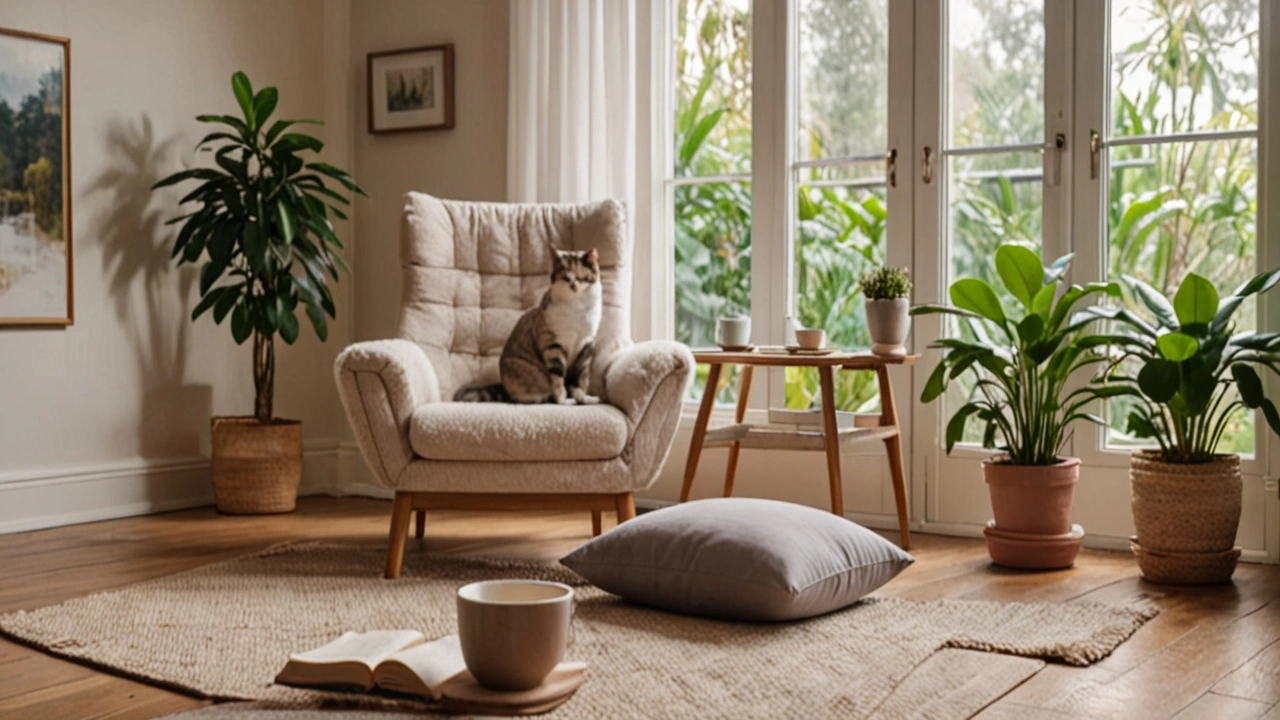
Mindfulness and Meditation
Often, we let our minds drift into the past or wander into the future, neglecting the precious moment we have right now. Mindfulness is the practice of anchoring ourselves in the present, fostering an awareness of our thoughts, senses, and surroundings. This technique helps to combat stress by stopping the constant buzzing of our minds, allowing us some peace.
The concept of mindfulness isn't new. It has been rooted in ancient Eastern philosophies and practices, particularly in Buddhism. The essence of mindfulness is to experience each moment as it comes, without judgment or distraction. By grounding ourselves in the present, we can find reprieve from anxious thoughts and worries that may plague our minds.
Meditation, a key practice within mindfulness, involves sitting quietly, focusing on breath, and observing thoughts as they come and go, without attaching any judgment to them. In a world filled with endless to-do lists and perpetual notifications, meditation can act as a sanctuary for the mind. Studies have shown that regular meditation can reduce symptoms of anxiety and depression, improve attention spans, and even enhance self-awareness. Trained practitioners have reported that just 10 to 15 minutes of daily meditation can make a significant difference.
"The goal of meditation isn't to control your thoughts, it’s to stop letting them control you." - UnknownMeditation doesn't require a complete transformation of your lifestyle. It can be as simple as closing your eyes and paying attention to your breath for a few minutes each day. Start by finding a quiet place where you won't be interrupted. Sit comfortably, with your back straight but not rigid. Close your eyes, and take a moment to notice your breath. Don't try to control it; just observe it. Notice the feeling of the air as it enters and leaves your nostrils, the rise and fall of your chest, the rhythm it creates within your body.
As you breathe, thoughts will inevitably pop into your mind. This is normal and to be expected. The key is not to follow these thoughts down their rabbit holes. Instead, acknowledge them and gently bring your focus back to your breathing. The more you practice this, the easier it becomes, and you'll find that your mind starts to settle naturally into a state of tranquility.
Mindfulness isn't confined to meditation. You can integrate it into daily activities like eating, walking, or even washing dishes. Next time you eat a meal, try to slow down and pay attention to the taste and texture of each bite. Notice the colors and aromas of your food. When you walk, focus on the sensation of your feet hitting the ground, the rhythm of your steps, the sights and sounds around you. These small practices can cultivate a sense of mindfulness throughout your day, reducing stress and grounding you in the present.
For those new to mindfulness and meditation, guided sessions can be particularly helpful. Apps like Headspace and Calm offer an array of meditation exercises tailored to different needs, whether it's reducing anxiety or aiding sleep. These resources can provide structure and support as you begin your mindfulness journey.
In conclusion, mindfulness and meditation offer powerful tools for navigating the stormy seas of stress and anxiety. By teaching us to anchor in the present and observe without judgment, these practices support mental clarity and emotional resilience. Whether through mindful breathing or reflective meditation, incorporating these techniques into everyday life can profoundly impact our well-being, leading to a calmer, more balanced existence.
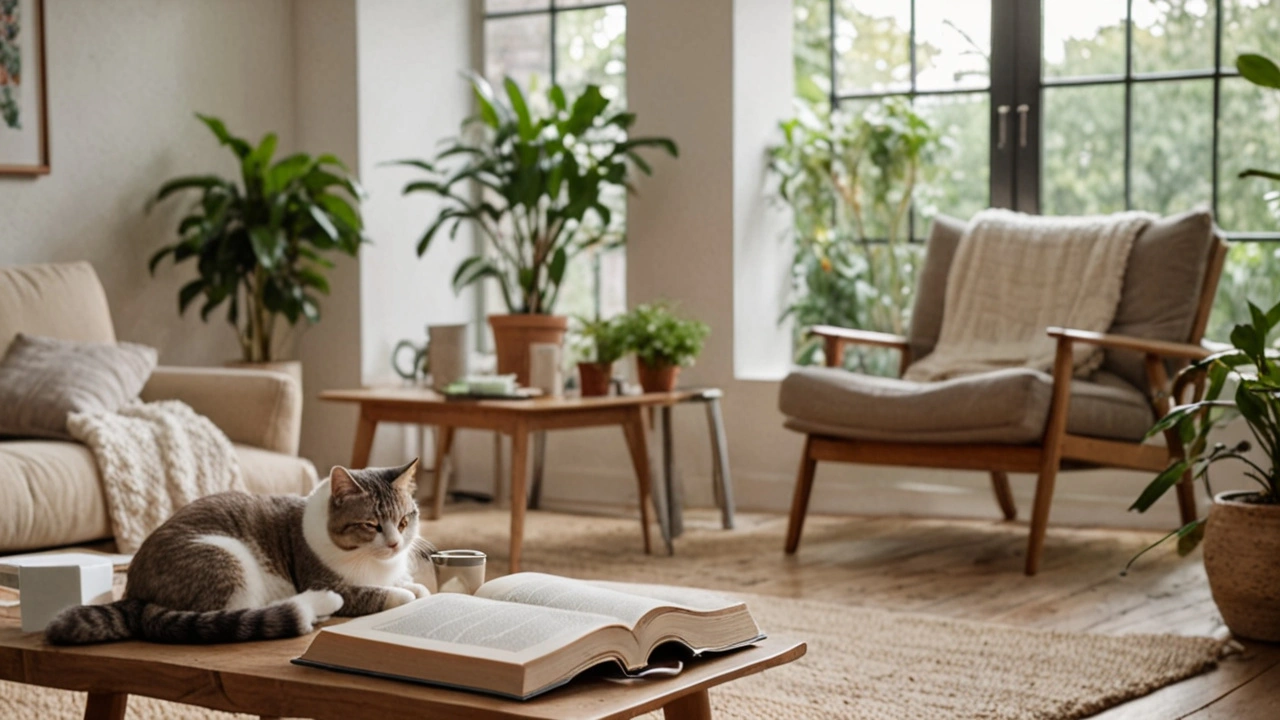
Physical Activities That Promote Relaxation
Staying active is more than just a way to keep in shape. Certain physical activities are also known to promote relaxation and reduce stress. One well-known fact is that exercise triggers the release of endorphins, the body's natural mood elevators. Engaging in regular physical activity can help reduce stress levels and boost your overall sense of well-being.
A popular choice for stress relief is yoga. Yoga combines physical postures, breathing exercises, and meditation, which can help promote both physical and mental relaxation. Studies have shown that practicing yoga can decrease the secretion of cortisol, the primary stress hormone. It also helps improve symptoms of anxiety and depression.
Another effective activity is walking. A leisurely stroll, especially in a natural setting like a park or beach, can significantly lower stress levels. Walking increases blood flow and oxygen to the brain, which can help improve mood and energy. According to the American Psychological Association, even a short walk can boost your mood and reduce anxiety.
In the words of Dr. John Ratey, an associate clinical professor of psychiatry at Harvard Medical School, "Exercise is one of the best ways to manage stress. It helps clear your mind, improves your mood, and keeps your body healthy."
For those who enjoy a bit of intensity, running can be an excellent way to de-stress. The rhythmic nature of running can be meditative, allowing you to focus on your breathing and the world around you rather than what’s worrying you. Running also increases the production of endorphins, leading to what's often referred to as a


